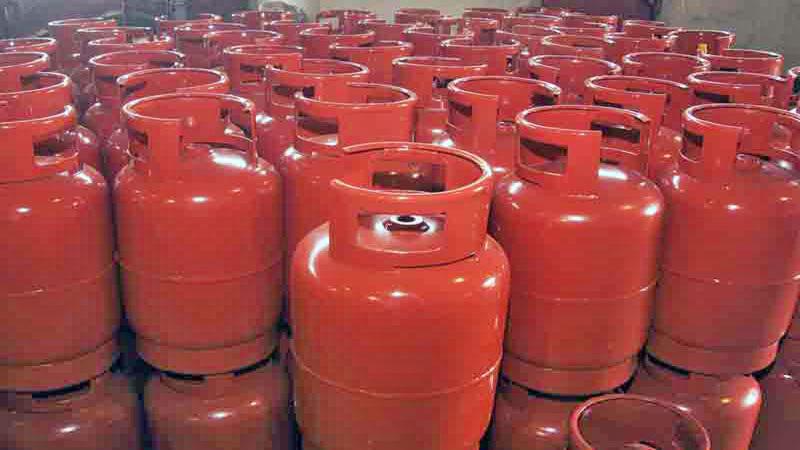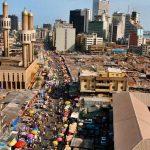In keeping with Federal Government’s plan for clean energy drive in the country, the federal Ministry of Petroleum resources has commenced new clean energy drive initiative through Liquified Petroleum Gas (LPG), penetration which would see the engagement of 380 000 entrepreneurs as micro-distributors.
To drive the scheme, Nigeria’s Minister of State for Petroleum Resources, Emmanuel Ibe Kachikwu has confirmed that the government is working with strong incentives to enable them produce LPG cylinder in the country.
He confirmed further that about four of the companies are getting facility of support from the Nigerian Content Development Monitoring Board to enhance their operations.
Over the years, Nigeria has seen thousands of rural women and men engage in charcoal and firewood business, which does not promote clean energy and adherence to global call in addressing concerns on climate change.
However, the government is determined to build their capacity, convert them to LPG micro-distributors in all the 774 local governments across the country.
In this new scheme, the Federal Government is targeting 380 000 micro distributors in all the local governments across the country, which would see more opportunities for local gas manufacturing plants spring up in different regions across the country for wealth creation along the LPG value chain.
It would be noted that Nigeria is the second largest producer of LPG in Africa with only Algeria next to it. It produces over 2 million tons. However, further findings show that there is only 11percent of LPG utilisation nationwide.
The current penetration for LPG is 11percent, which implies that the nation is only consuming for our domestic production about 225 000 metric tons, says Brenda Ataga, Special Assistant to the Minister of state for Petroleum resources on Downstream and Infrastructure.
Further findings reveal that Nigeria’s current lack of abysmal use of clean energy sources had led to four diverse socio-economic impacts to the economy.
Brenda noted that “We are currently emitting 200 million green house gases from the traditional fuels that we use-from LGO, Vehicles, kerosene, fuel we are using, charcoal.
“In terms of our environmental context, our deforestation rate was up 67percent and we have lost about 670 000 hectares of primary forest, at the least from the national conservative agency.”
“In addition to that, we have also created a gap in terms of job opportunities; as such we are looking at our youths, who are jobless.
“When we look at health-related issues, about 150 000 women and children are affected by indoor air pollution, leading causes of deaths.
Other key social concerns is the time that children and women use in fetching firewood, which deprive them of man hours, which has inadvertently created poverty.
Furthermore, the LPG penetration focuses keenly on energy diversification.
”What we want to see in the programme is reduce environmental issues, meet our Paris Agreements, as we have signed on to reduce greenhouse gases by 20percent.
“Reduce the national dependence on traditional fuels consisting of PMS, kerosene, and start converting the different usages to LPG.
Furthermore, one of our targets is to ensure 40percent fuel switching-nationwide, whether we are using it for domestic cooking, auto gas, and power generation.
In terms of social stimulation, she said, “Our plan with the LPG is to create about 500 000 jobs. What we are doing is that we are revising the LPG ecosystem, to give an opportunity to youths and women to be financially included in the real sale of LPG.”
According to the government official, “We have launched a programme called ‘micro-distribution centres’. That is what we launched with the military most recently.”
She explained further that the micro-distribution centres are expected to replace illegal and unsafe practices, and standardise re-selling of gas. “That way, kerosene, firewood sellers, would be converted to LPG re-sellers in their respective vicinity.”
“We are targeting 774 local governments. With the micro-distribution centres, we would encourage people to come and take a cylinder of gas, without paying for the cylinder, continue to do it on an exchange basis, and a distributor is going to own that location, and we monitor their constituents wherever they are.
Speaking on the repayment plan for the micro distributors, she noted that, “For the women in the villages, it gives the municipal authorities opportunities to create jobs for the people. They would be given these equipment on an amortised basis of payments. They are not paying upfront for it. They are given a certain period of time to pay back to the government.”
According to her,”We expect the private sector to come and support us, just the way, the armed forces are supporting us. They pay 100percent with their money, they are issuing it to their own widows and wives.”
She, however, noted that the Federal Government focuses on kerosene sellers, illegal re-sellers of LPG that is on-going now, and also the fire wood sellers by ensuring that they explore the advantages in the scheme.
On the expected job benefits from the scheme, Ataga said it was expected that the scheme would create a job in the value chain, specifically in new injection of trucks, injection of micro-distributors.
“In Nigeria, we are targeting 380 000 micro distribution centres across the country for the LPG. We are also looking at setting up five cylinder manufacturing plants. One cylinder manufacturing plant is already up, that is the Techno Oil. That is the plant that had manufactured the cylinders that the armed forces have used.”
Ibe Kachikwu, minister of State for Petroleum Resources, has noted that the Federal Government is already working to ensure the installation of gas filling plants in each of the 774 local government areas in the country.
Kachikwu confirmed this at the recent commissioning of the Nigerian Army Welfare Limited Guaranty Gas plant at Mambilla Barracks.
“In the next one or two years every local government area will have gas filling plants.”
He added that cylinders produced by the companies would be distributed free to consumers as part of efforts at encouraging local consumption in the country.
According to him, the government is also planning to optimise the country’s vast resources through the virtual gas pipeline system.
Already, the Nigerian National Petroleum Corporation (NNPC) has signed a contract with a private firm for the activation of the virtual gas pipeline network for power generation.
The project, which will be facilitated through the installation of Mini-LNG plants, is designed to supply, in the first instance, about 84 million standard cubic feet of gas per day (mmscf/d) by transporting gas from production fields using customised cryogenic tankers to areas not easily accessible through pipelines.
This is coming at a time Nigeria’s current gas reserve is about 202 trillion cubic feet (TCF), up from the initial figure of 199TCF with a potential for up to 600TCF in undiscovered resources.
HARRISON EDEH, ABUJA











